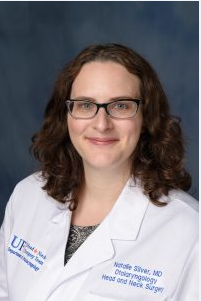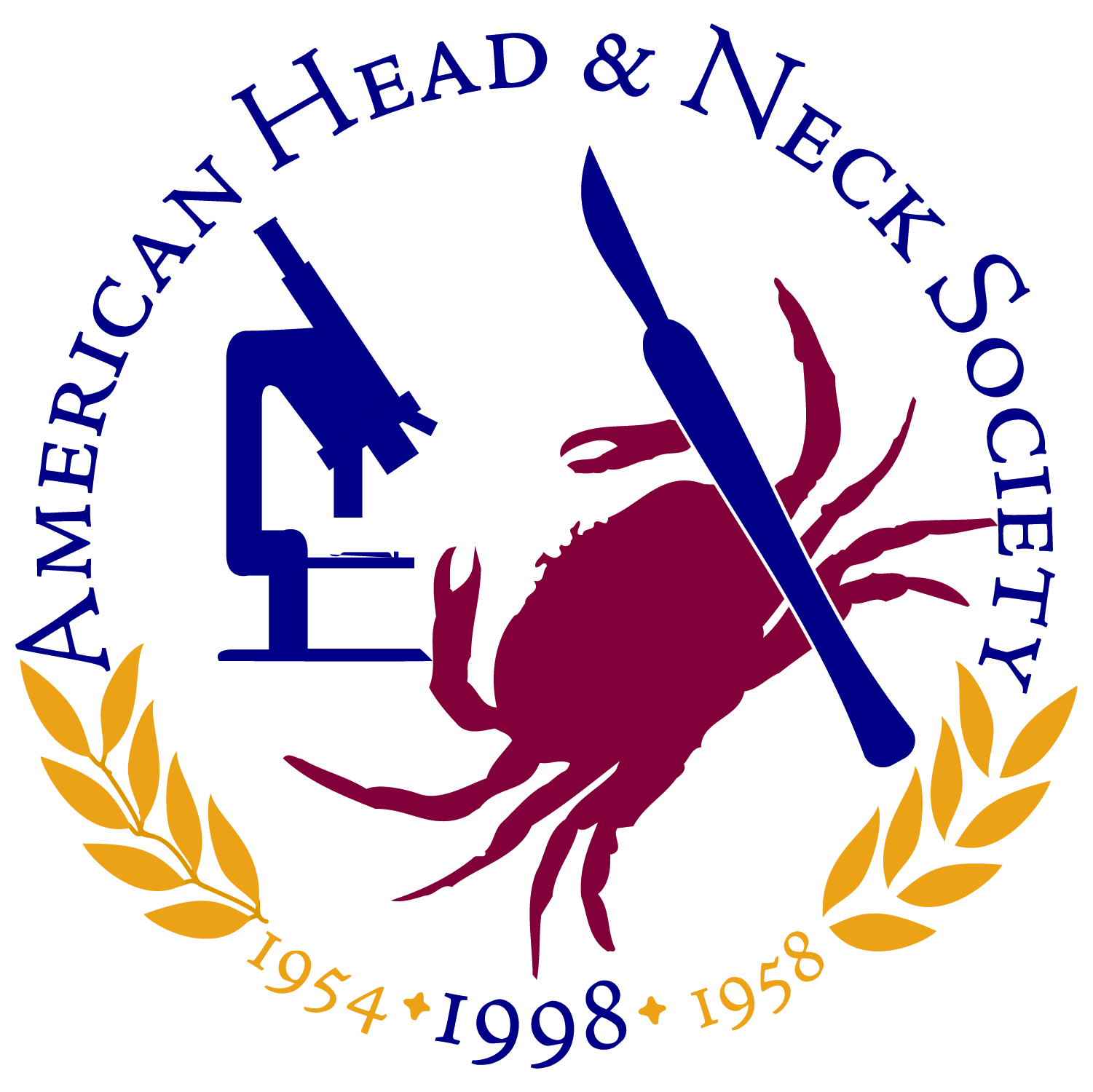Radiotherapy versus transoral robotic surgery and neck dissection for oropharyngeal squamous cell carcinoma (ORATOR): an open-label, phase 2, randomized trial
Anthony C Nichols, Julie Theurer, Eitan Prisman, Nancy Read, Eric Berthelet….David A Palma
From Clinical Trial. The Lancet. Oncology, October 2019; 20(10):1349-1359.
Article Review by Natalie Silver, MD
Background/Hypothesis:
Design: Investigator-initiated, multicenter, international, open label, parallel-group, phase 2, randomized clinical trial comparing T1-T2, N0-2 OPSCC patients randomized to either primary radiotherapy (70Gy, chemotherapy if N1-N2) or TORS plus neck dissection (with/without pathologic based adjuvant chemo/radiotherapy). The primary endpoint was swallowing-related QOL at 1 year as established by the MD Anderson Dysphagia Inventory (MDADI) score, powered to detect a 10 point improvement (a clinically meaningful change).
Summary of results: 68 patients (34 per group) were randomized over a 5 year period (following stratification by p16 status). MDADI total scores at 1 year were: mean 86.9 (SD 11.4) in the radiotherapy (RT) group and 80.1 (SD 13.0) in the TORS plus neck dissection group (p=0.042), which did not meet the prescribed threshold (10 points) for a clinically meaningful difference. Toxicity patterns differed between the two groups with neutropenia, hearing loss and tinnitus being more common in the in the RT group and more cases of trismus in the TORS plus neck dissection group. The most common adverse events in the RT group were dysphagia (n=6), hearing loss (n-6), and mucositis (n=4) and in the TORS plus neck dissection group, dysphagia was the most common adverse event (n=9) and there was one patient death caused by bleeding after TORS. Oncologic outcomes were similar in both groups.
Strengths:
- Well-designed, prospective randomized clinical trial..
- Highest level of evidence for a clinical study (Level I evidence).
- Multi-institutional and international trial.which was not measured in this study.
- MDADI is a commonly used and validated swallowing QOL assessment tool.
Weaknesses
- Modest sample size and was not powered to compare survival outcomes.
- Institutional differences in criteria for administration of adjuvant therapy may be confounding.
- Radiotherapy has late side effects, specifically with respect to dysphagia and the swallowing QOL scores may worsen more considerably in the radiotherapy group >1 year after treatment, which was not measured in this study.
Key Points:
- While this study did not show clinically meaningful differences in swallowing QOL scores at 1 year, this is the only prospective randomized controlled clinical trial published, to date, to address this concern.
- Tese findings conflict with previous non-randomized comparisons of radiotherapy with TORS which have found that both modalities achieved similar oncologic outcomes, but that functional outcomes appeared better with TORS (Yeh et al, systematic review 2015).
- Much of the QOL data (not only swallowing data) in this study favored radiotherapy. The surgical group had a clinically meaningful decline in scores for “Global” (p=0.024) and “Emotional” (p=0.021) subscales. These differences (when compared to retrospective studies) may be due to bias in the retrospective reviews that included advanced T –stage patients not amenable to TORS, or early studies prior to IMRT.
- In a multidisciplinary setting, it is important for clinicians to understand and counsel our patients in both surgical and non-surgical treatment options, since there are differences in risks and toxicity patterns for the two treatment modalities. Studies, like ORATOR, may be used as a guide, but additional clinical research is needed and discussions about treatment options should be personalized to each individual patient and institution.
- The results from several more clinical trials will provide high quality evidence for outstanding questions that can help guide us to tailor treatment for OPSCC patients, these include; the QoLATI trial (with similar cohorts and endpoints to ORATOR), ECOG 3311 (NCT01898494) and the ORATOR2 trial (NCT03210103).
From the Basic Science/Translational Service
Jeffrey C. Liu MD Vice Chair
Richard Wong MD Chair


 AHNS Endorses ACS Statement on Recent Violence and Protests
AHNS Endorses ACS Statement on Recent Violence and Protests